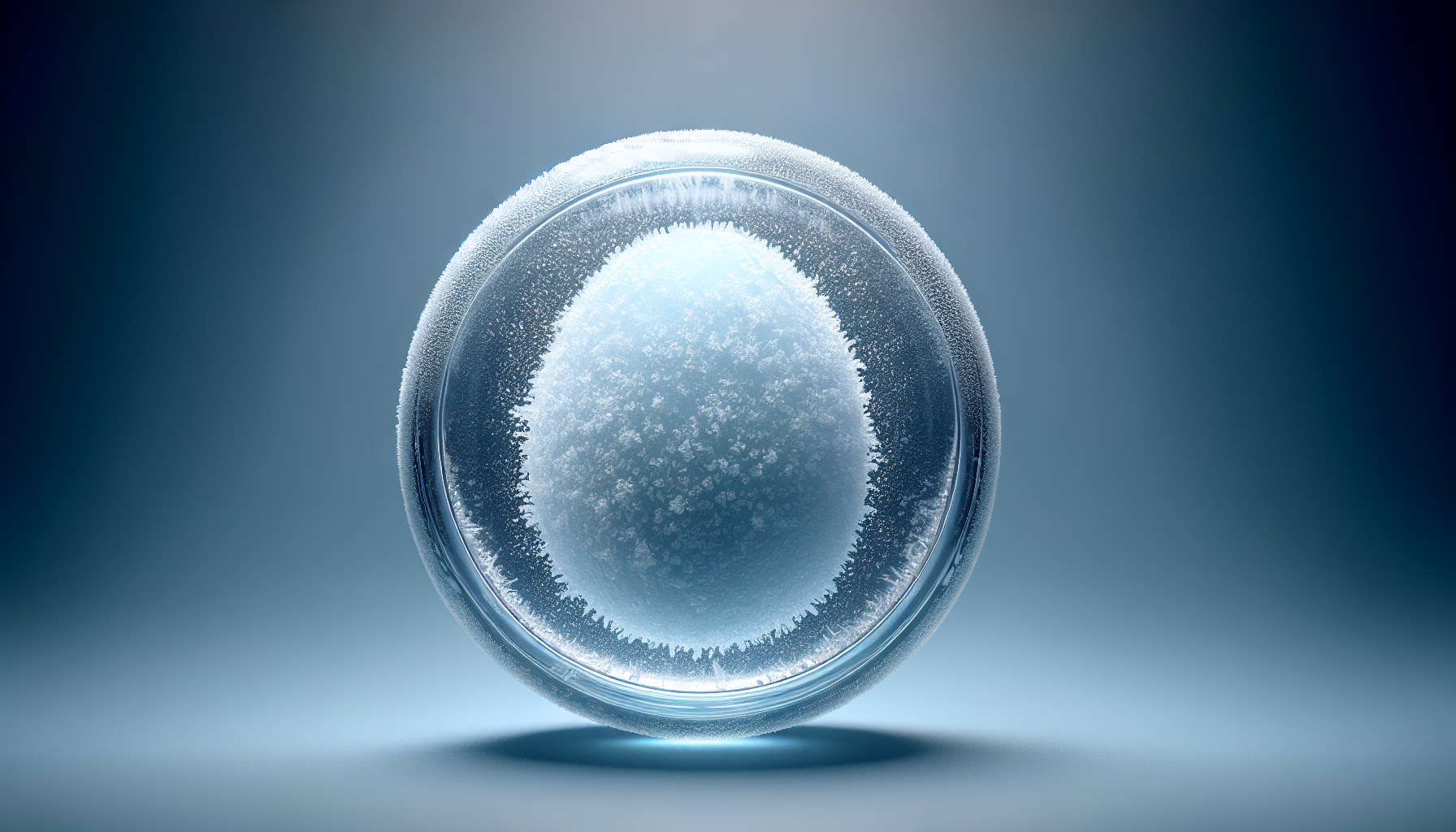In India, the future of fertility preservation is filled with promise, offering hope to couples and individuals who want to start a family but may face challenges in conceiving. With its world-class healthcare and wellness facilities, India has become a hub for medical tourism, attracting individuals from around the globe who seek top-notch treatments while immersing themselves in the rich cultural tapestry of this vibrant country. In this article, we will explore the various fertility preservation options available in India, shedding light on the advancements and possibilities that pave the way for a brighter future in the realm of reproductive health. Whether it’s egg freezing, sperm freezing, or embryo cryopreservation, India’s fertility preservation options provide a ray of hope for those looking to protect their fertility and fulfill their dream of parenthood.

Overview of Fertility Preservation
Understanding fertility preservation
Fertility preservation refers to the various methods and techniques used to protect and preserve a person’s ability to have biological children in the future. These methods are particularly important for individuals who may face fertility challenges due to medical treatments, age, or other factors. Fertility preservation technologies have advanced significantly in recent years, offering hope for individuals who wish to start or expand their families at a later time.
Importance of fertility preservation
The significance of fertility preservation cannot be overstated. For many individuals, the ability to have biological children is a deeply personal desire and a fundamental aspect of their life goals. However, there are several scenarios in which fertility may be compromised, such as cancer treatments, genetic disorders, or simply the natural decline in fertility with age. Fertility preservation provides a way for individuals to safeguard their reproductive potential and have the option to conceive children in the future.
Current situation in India
India has emerged as a leading destination for medical tourism, offering world-class healthcare and wellness services. As part of this thriving industry, fertility preservation has gained recognition and importance. However, there is still a lack of awareness and accessibility to these options in India, particularly in rural areas. Efforts are being made to improve the availability and affordability of fertility preservation services throughout the country, ensuring that individuals from all walks of life have equal access to these essential treatments.
Egg Freezing
Process of egg freezing
Egg freezing, also known as oocyte cryopreservation, is a technique used to preserve a woman’s eggs for future use. The process involves stimulating the ovaries to produce multiple eggs, which are then retrieved and frozen. This procedure is done through a series of injections and regular monitoring to ensure optimal egg development. Once the eggs are collected, they are cryopreserved using a technique called vitrification, which rapidly freezes the eggs to prevent any damage.
Advantages of egg freezing
Egg freezing offers several advantages to women who wish to preserve their fertility. Firstly, it allows women to delay childbirth and pursue other life goals without worrying about a decline in fertility. Additionally, egg freezing can be beneficial for women facing medical treatments that may harm their ovaries, such as chemotherapy or radiation therapy. By freezing their eggs before treatment, they have the possibility of conceiving with their own eggs in the future.
Success rates and limitations
The success rates of egg freezing have improved significantly in recent years, thanks to advancements in vitrification techniques. However, it is important to note that the age at which the eggs were frozen plays a significant role in the chances of a successful pregnancy. Generally, eggs frozen at a younger age have higher success rates. Additionally, not all frozen eggs will lead to a viable pregnancy. It is also crucial to consider the limitations of egg freezing, such as the need for multiple rounds of stimulation and retrieval, as well as the potential need for assisted reproductive technologies (ART) in the future.
Cost of egg freezing in India
The cost of egg freezing in India varies depending on several factors, including the clinic, the number of cycles required, and additional treatments or services. On average, the cost of a single cycle of egg freezing in India can range from ₹50,000 to ₹150,000. It is essential to consider not only the upfront cost but also any ongoing storage fees for the frozen eggs.

Sperm Freezing
Procedure for sperm freezing
Sperm freezing, also known as cryopreservation, involves the collection, cryopreservation, and storage of a man’s sperm for future use. The process begins with the collection of a semen sample, which is then carefully prepared, mixed with a cryoprotectant solution, and frozen using a controlled-rate cooling technique. The frozen sperm can be stored indefinitely and later used for various assisted reproductive techniques, such as in vitro fertilization (IVF) or intrauterine insemination (IUI).
Benefits of sperm freezing
Sperm freezing offers several benefits, providing a viable option for preserving male fertility. It can be particularly valuable for men facing medical treatments that may affect their fertility, such as chemotherapy or testicular surgery. By freezing their sperm before undergoing treatment, men have the possibility of fathering biological children in the future. Sperm freezing is also a practical solution for men who anticipate facing potential risks to their fertility due to their profession or lifestyle choices.
Success rates and considerations
The success rates of using frozen sperm for assisted reproduction are generally high. However, it is worth noting that individual success can vary depending on various factors, including the quality of the frozen sperm and the specific fertility treatment used. For instance, if the quality of the frozen sperm is poor, it may require additional procedures like intracytoplasmic sperm injection (ICSI) to increase the chances of a successful pregnancy. It is vital for individuals considering sperm freezing to consult with fertility specialists to understand their own unique circumstances and potential outcomes.
Affordability of sperm freezing
The cost of sperm freezing in India is usually lower compared to other fertility preservation options. On average, the cost of sperm freezing ranges from ₹10,000 to ₹30,000 per sample. This cost typically includes the initial collection, processing, cryopreservation, and storage for a specific period. However, it is important to consider any additional costs associated with fertility treatments in the future if the frozen sperm is used.
Embryo Freezing
How embryo freezing works
Embryo freezing, also known as embryo cryopreservation, involves the collection, fertilization, and cryopreservation of embryos created through in vitro fertilization (IVF). The process starts with the stimulation of the ovaries to produce multiple eggs, which are then retrieved and fertilized with sperm in a laboratory. After fertilization, the resulting embryos are allowed to develop for a few days, and the best-quality embryos are selected for transfer to the uterus. Any remaining viable embryos can be cryopreserved for future use.
Advantages of embryo freezing
Embryo freezing provides a reliable option for preserving fertility and expanding one’s family in the future. By freezing viable embryos, individuals or couples can store embryos for a prolonged period, allowing them to undergo additional IVF cycles without going through the entire egg retrieval and fertilization process again. Embryo freezing is particularly advantageous for couples who have completed their desired family size but wish to preserve the opportunity for future pregnancies.
Challenges and ethical concerns
Embryo freezing presents several challenges and ethical considerations. One of the main challenges is the potential for excess embryos to be created during IVF cycles. While these embryos can be cryopreserved, decisions must be made regarding the storage time, disposition of unused embryos, and potential ethical considerations surrounding embryo disposal or donation. Additionally, the process of embryo freezing requires the synchronization of the menstrual cycle and hormone therapies, which can be physically and emotionally demanding for individuals undergoing the procedure.
Availability and cost in India
Embryo freezing is readily available in India, with many fertility clinics offering this service alongside other assisted reproductive techniques. The cost of embryo freezing in India can vary depending on factors such as the clinic, the number of embryos to be frozen, and any additional treatments or services required. On average, the cost of embryo freezing ranges from ₹70,000 to ₹150,000 per cycle, excluding the cost of subsequent embryo transfer and other fertility treatments.

Ovarian Tissue Freezing
Process of ovarian tissue freezing
Ovarian tissue freezing, also known as oophoropexy, involves surgically removing a portion of a woman’s ovary and cryopreserving it for future use. The procedure is typically performed laparoscopically under general anesthesia. The ovarian tissue is carefully dissected and divided into small fragments, which are then frozen using a slow freezing or vitrification technique. The frozen tissue can be stored and later transplanted back into the woman’s body or used for other fertility treatments.
Benefits and potential applications
Ovarian tissue freezing offers several benefits and potential applications. It is particularly valuable for women who need immediate cancer treatments that may impair their fertility, as it allows them to preserve their ovarian function and potentially restore it after treatment. Ovarian tissue freezing also holds promise for women who experience premature ovarian insufficiency or those who have a genetic predisposition to early menopause. In some cases, the cryopreserved tissue can be directly transplanted back into the woman’s body, allowing natural conception.
Risks and success rates
While ovarian tissue freezing is a promising technique, it is not without risks. Surgical procedures always carry inherent risks, such as infection, bleeding, or damage to surrounding structures. Additionally, there is a risk of the transplanted tissue not functioning as expected or becoming cancerous. Success rates for ovarian tissue freezing vary depending on various factors, including the age and overall ovarian reserve of the individual. It is crucial for individuals considering ovarian tissue freezing to consult with fertility specialists to understand the potential risks and success rates specific to their situation.
Cost and accessibility in India
The cost of ovarian tissue freezing in India varies depending on the specific clinic, the complexity of the procedure, and any additional treatments or services required. On average, the cost of ovarian tissue freezing can range from ₹150,000 to ₹300,000. It is important to consider not only the upfront cost but also any ongoing storage fees for the cryopreserved tissue. The accessibility of ovarian tissue freezing in India is gradually improving, with more fertility clinics offering this option as an alternative to other fertility preservation techniques.
Testicular Tissue Freezing
Procedure for testicular tissue freezing
Testicular tissue freezing involves the surgical removal and cryopreservation of a small sample of testicular tissue from a male. The procedure is typically performed under general or local anesthesia. The testicular tissue is carefully dissected, fragmented, and frozen using a slow freezing or vitrification technique. The frozen tissue can be stored for future use, such as sperm production or to restore fertility in individuals facing cancer treatments or other conditions that may affect their reproductive function.
Indications and use cases
Testicular tissue freezing is primarily indicated for males who have not yet reached puberty or those who are unable to produce sperm due to non-obstructive azoospermia or other conditions. It is particularly relevant for individuals facing cancer treatments that may compromise their fertility. By preserving a sample of testicular tissue, these individuals have the possibility of restoring their reproductive function in the future and having biological children.
Outcomes and considerations
The outcomes of testicular tissue freezing depend on several factors, including the age of the individual, the reason for fertility preservation, and the quality of the frozen tissue. While the procedure holds promise, it is important to note that success rates for testicular tissue freezing are generally lower than other fertility preservation techniques such as sperm freezing. Additionally, the process of using the cryopreserved tissue to restore fertility typically involves more complex procedures, such as testicular tissue grafting or in vitro maturation (IVM). It is essential for individuals considering testicular tissue freezing to understand the potential outcomes and consult with fertility specialists to make informed decisions about their fertility preservation options.
Affordability and availability
The cost of testicular tissue freezing in India can vary depending on the specific clinic, the complexity of the procedure, and any additional treatments or services required. On average, the cost of testicular tissue freezing ranges from ₹100,000 to ₹200,000. It is essential for individuals or families to consider not only the upfront cost but also any ongoing storage fees for the cryopreserved tissue. The availability of testicular tissue freezing in India is gradually increasing, with fertility clinics offering this option as part of comprehensive fertility preservation services.
Fertility Preservation for Cancer Patients
Options for cancer patients
Cancer treatments, such as chemotherapy and radiation therapy, can have detrimental effects on fertility in both men and women. Therefore, it is crucial for cancer patients to explore fertility preservation options before starting their treatment. For women, egg freezing, embryo freezing, or ovarian tissue freezing may be viable options, depending on their age and individual circumstances. For men, sperm freezing or testicular tissue freezing may be suitable options. It is important for cancer patients to consult with their doctors and fertility specialists to determine the most appropriate fertility preservation method for their specific situation.
Importance of fertility preservation prior to cancer treatment
Preserving fertility before undergoing cancer treatment is of utmost importance. Cancer treatments, while life-saving, can significantly impact reproductive function and future fertility. By undergoing fertility preservation techniques, cancer patients can safeguard their ability to have biological children after completing their treatment. It is essential for oncologists and fertility specialists to work together to educate and inform cancer patients about the available options and the importance of addressing fertility preservation before initiating treatment.
Collaboration between oncologists and fertility specialists
Collaboration between oncologists and fertility specialists is crucial to ensure comprehensive and coordinated care for cancer patients. Oncologists play a vital role in identifying patients at risk of fertility loss due to cancer treatments and referring them to fertility specialists for timely counseling and interventions. Fertility specialists, on the other hand, are responsible for providing detailed information about fertility preservation options, guiding patients through the process, and facilitating the necessary procedures. By working together, oncologists and fertility specialists can optimize the outcomes and overall well-being of cancer patients.
Social Reasons for Fertility Preservation
Understanding social reasons
While medical reasons are often the primary drivers for fertility preservation, social reasons also play a significant role. Many individuals and couples choose to freeze their eggs, sperm, or embryos for social reasons, such as pursuing education, advancing their careers, or delaying parenthood for personal or financial reasons. Fertility preservation allows these individuals to maintain reproductive options and the possibility of starting a family when they are ready.
Changing societal perspectives
Societal perspectives on family planning and fertility have undergone significant changes in recent years. The traditional notion of starting a family at a young age has evolved, with many individuals opting to delay childbirth for various personal, professional, or financial reasons. As a result, fertility preservation has become an increasingly viable option for individuals who wish to have biological children in the future. These changing perspectives and societal norms have contributed to the growing demand and acceptance of fertility preservation methods.
Legal and ethical aspects
Fertility preservation raises several legal and ethical considerations that need to be addressed. Storage duration, consent procedures, disposal of unused samples, and ownership rights are some of the legal aspects that vary from one jurisdiction to another. Ethical considerations include potential conflicts of interest between individuals who have frozen eggs, sperm, or embryos and any future partners or spouses. It is important for individuals considering fertility preservation to understand the legal and ethical implications and seek professional guidance throughout the process.
Adoption and Surrogacy as Alternatives
Comparing fertility preservation options with adoption and surrogacy
While fertility preservation provides individuals with the opportunity to have biological children in the future, adoption and surrogacy offer alternative pathways to parenthood. Adoption involves legally taking on the responsibility of a child who is not biologically related to the adoptive parents, while surrogacy allows intending parents to have a child through the assistance of a gestational carrier. Each option has its own unique considerations, and the choice ultimately depends on individual circumstances, preferences, and legal regulations.
Factors to consider in decision-making
Several factors should be considered when deciding between fertility preservation, adoption, or surrogacy. These include one’s desire to have a genetically related child, the success rates and limitations of each option, the emotional and financial implications, and the legal regulations governing each process. It is essential to thoroughly research and understand the options, consult with fertility specialists, adoption agencies, or surrogacy professionals, and make an informed decision based on individual circumstances, values, and priorities.
Support and resources for adoption and surrogacy in India
India is known for its strong cultural emphasis on family and child-rearing, making it an attractive destination for individuals or couples seeking to adopt or pursue surrogacy. Several adoption agencies and organizations provide support and guidance throughout the adoption process, ensuring compliance with legal requirements and promoting child welfare. Similarly, surrogacy arrangements in India are regulated to protect the rights and well-being of all parties involved. Intending parents considering adoption or surrogacy can find a wide range of resources, support groups, and professional assistance throughout their journey.
Conclusion
Promising future for fertility preservation in India
The field of fertility preservation in India is rapidly evolving, offering hope for individuals who wish to preserve their reproductive potential. With advancements in technology, improved access to fertility clinics, and increasing awareness, the future holds great promise for those seeking fertility preservation options. As the medical tourism industry in India continues to flourish, providing world-class healthcare and wellness services, fertility preservation is poised to become a key aspect of comprehensive healthcare, ensuring the well-being, choices, and reproductive freedom of individuals and couples.
Continued advancements and awareness
Continued advancements in fertility preservation technologies, research, and techniques will further enhance success rates, reduce limitations, and expand the options available to individuals considering fertility preservation. Additionally, increasing awareness among both healthcare professionals and the general public is essential to ensure that fertility preservation is recognized as a vital aspect of overall reproductive health. By fostering collaboration, education, and research, the field of fertility preservation can continue to grow and cater to the diverse needs and aspirations of individuals in India.
Access and affordability for all
Ensuring access and affordability of fertility preservation options for all individuals is a vital goal for healthcare systems in India. Efforts should be made to bridge the gap between urban and rural areas, improve the availability of fertility clinics and specialists, and make these services more affordable. Government initiatives, insurance coverage, and public awareness campaigns can play a significant role in achieving these goals and ensuring that fertility preservation is accessible to individuals from all socioeconomic backgrounds. By prioritizing accessibility and affordability, India can lead the way in providing comprehensive reproductive healthcare to its diverse population.
